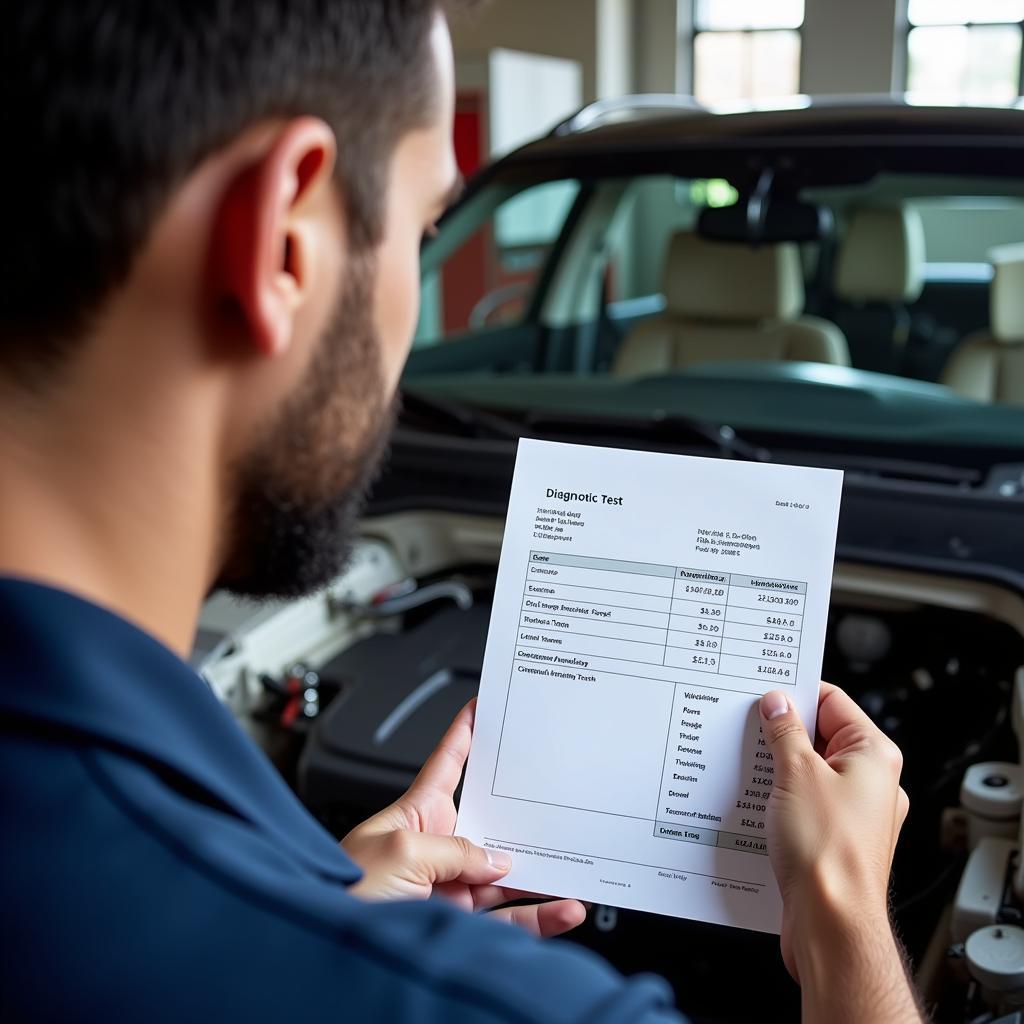When your car breaks down, the last thing you want is to be blindsided by unexpected costs. One often-overlooked aspect of car repair is the laboratory fee, a charge separate from parts and labor. Understanding what a car laboratory fee entails can save you from unpleasant surprises and empower you to make informed decisions about your vehicle’s maintenance.
What Exactly is a Car Laboratory Fee?
A car laboratory fee, sometimes referred to as a diagnostic fee, covers the cost of specialized testing and analysis performed to pinpoint the root cause of your car trouble. Think of it as the detective work involved in solving your car’s mystery ailment. This fee is typically incurred before any actual repair work begins.
Why is a Laboratory Fee Necessary?
Modern vehicles are complex machines with intricate electronic systems. Gone are the days when a mechanic could diagnose a problem simply by listening to the engine. Today’s cars require sophisticated diagnostic equipment and skilled technicians to interpret the data.
Here are some key reasons why a laboratory fee is often essential:
- Accurate Diagnosis: Pinpointing the exact issue can be like finding a needle in a haystack. Specialized tools and tests, often conducted in a dedicated laboratory setting, are crucial for avoiding misdiagnoses and unnecessary repairs.
- Electronic Control Units (ECUs): Your car’s ECU is essentially its brain, controlling various systems. Diagnosing ECU-related problems often requires specialized software and expertise.
- Fluid Analysis: Analyzing fluids like engine oil, transmission fluid, and coolant can reveal hidden problems like contamination or wear and tear, allowing for preventative maintenance.
What Factors Influence the Cost of a Laboratory Fee?
Several factors can influence the cost of a laboratory fee, including:
- Complexity of the Problem: Diagnosing a simple sensor issue will likely cost less than troubleshooting an intermittent electrical problem.
- Specialized Equipment: Some diagnostic procedures require the use of advanced equipment, which can impact the overall fee.
- Geographic Location: Labor rates and the cost of living can vary depending on your location.
Negotiating and Understanding Your Bill
While laboratory fees are generally unavoidable, it’s wise to be an informed consumer. Here are some tips:
- Inquire Upfront: When you take your car in, ask about the diagnostic fee and what it covers. A reputable shop will be transparent about their pricing.
- Request an Itemized Bill: Always request an itemized bill that clearly outlines the tests performed and their associated costs.
- Don’t Hesitate to Ask Questions: If anything seems unclear, don’t be afraid to ask your mechanic for clarification.
 Mechanic Explaining Car Diagnosis
Mechanic Explaining Car Diagnosis
Can I Perform My Own Diagnostic Tests?
While basic DIY diagnostic tools are available, they often lack the sophistication of professional-grade equipment. Attempting complex repairs without proper knowledge and tools can lead to further damage.
“Many car owners try to save money by doing their own repairs,” says John Smith, a veteran automotive engineer with over 20 years of experience. “While it’s admirable to want to tackle things yourself, modern car systems are highly intricate. Misdiagnosis can lead to costly mistakes down the line.”
When is a Laboratory Fee Worth It?
A laboratory fee is generally worthwhile when:
- The problem is intermittent or difficult to pinpoint.
- Your car’s warning lights are illuminated.
- You suspect a serious mechanical or electrical issue.
Conclusion
Understanding car laboratory fees is crucial for navigating car repairs with confidence. While these fees might seem like an added expense, they play a vital role in accurate diagnosis and effective repair, potentially saving you time, money, and frustration in the long run.
Need help deciphering a car laboratory fee or seeking reliable automotive expertise? Contact AutoTipPro at +1 (641) 206-8880 or visit our office at 500 N St Mary’s St, San Antonio, TX 78205, United States. We’re here to guide you through every step of your car repair journey.






Leave a Reply